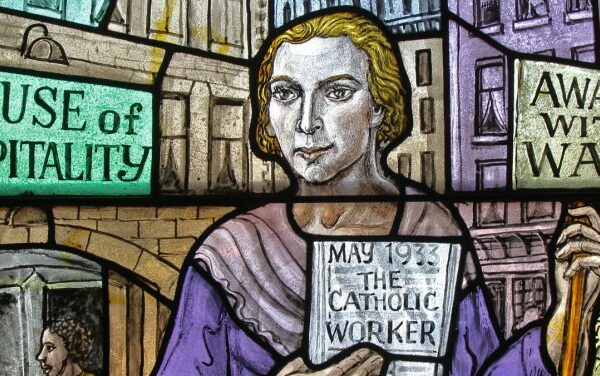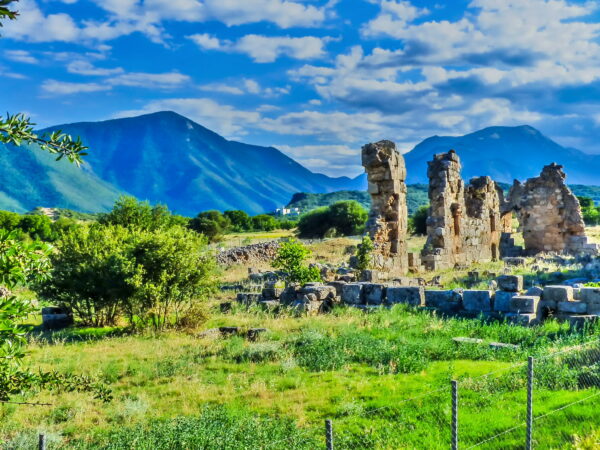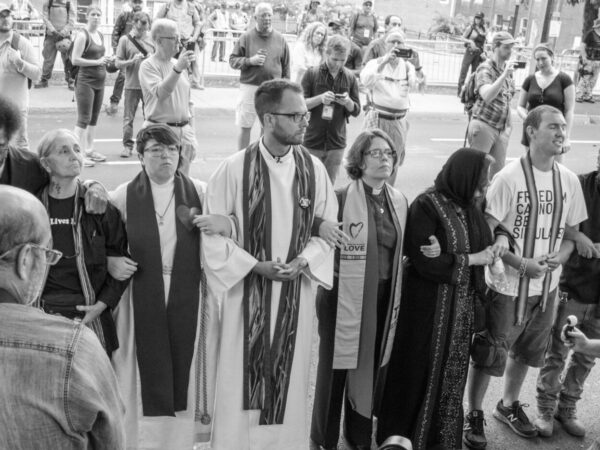
Divine Wisdom calls. It is publicly accessible. We may not recognize the voice because we might not be listening for it. But it is there beckoning to us.

An examination of responses that are counteracting the fascism emboldened by Trumpism; including Dorothy Day and the Catholic Worker movement as well as Christ’s moral imperative for anti-fascist action. A provision of counternarratives of hope to the prevailing motif of the Catholic Right’s resurgence.

Is the new materialist language of agential realism really an instance of what Niklaus Largier calls figuration? How did we transition from a use of the term “agent,” meaning conduit or receptive tool, an actor moved by an other, to the term “agential,” meaning immanent to itself, meaning matter that has its own imagination, even its own desire? Largier’s brief investigation of new materialist language in chapter six of Figures of Possibility ultimately serves as a provocative digression, a counterexample underscoring the overall thrust of his book.

The text of 1 Kings 8 is a conversation, not a monologue. For those of us who look to Scripture to guide our understanding and action in our own context, this text invites us to wrestle, conversationally, with the embedded ideologies of our own political leaders’ projects. Names matter in politics. But humble leadership, for the good of all, ought to matter more.

What futures are possible if Largier’s imaginative vision of transformative practice is embraced? Against the stagnating rehearsal of sedimented forms of knowledge production and the force of familiar affective patterns, Largier’s figures offer possibilities as infinite as the bodies they represent.






